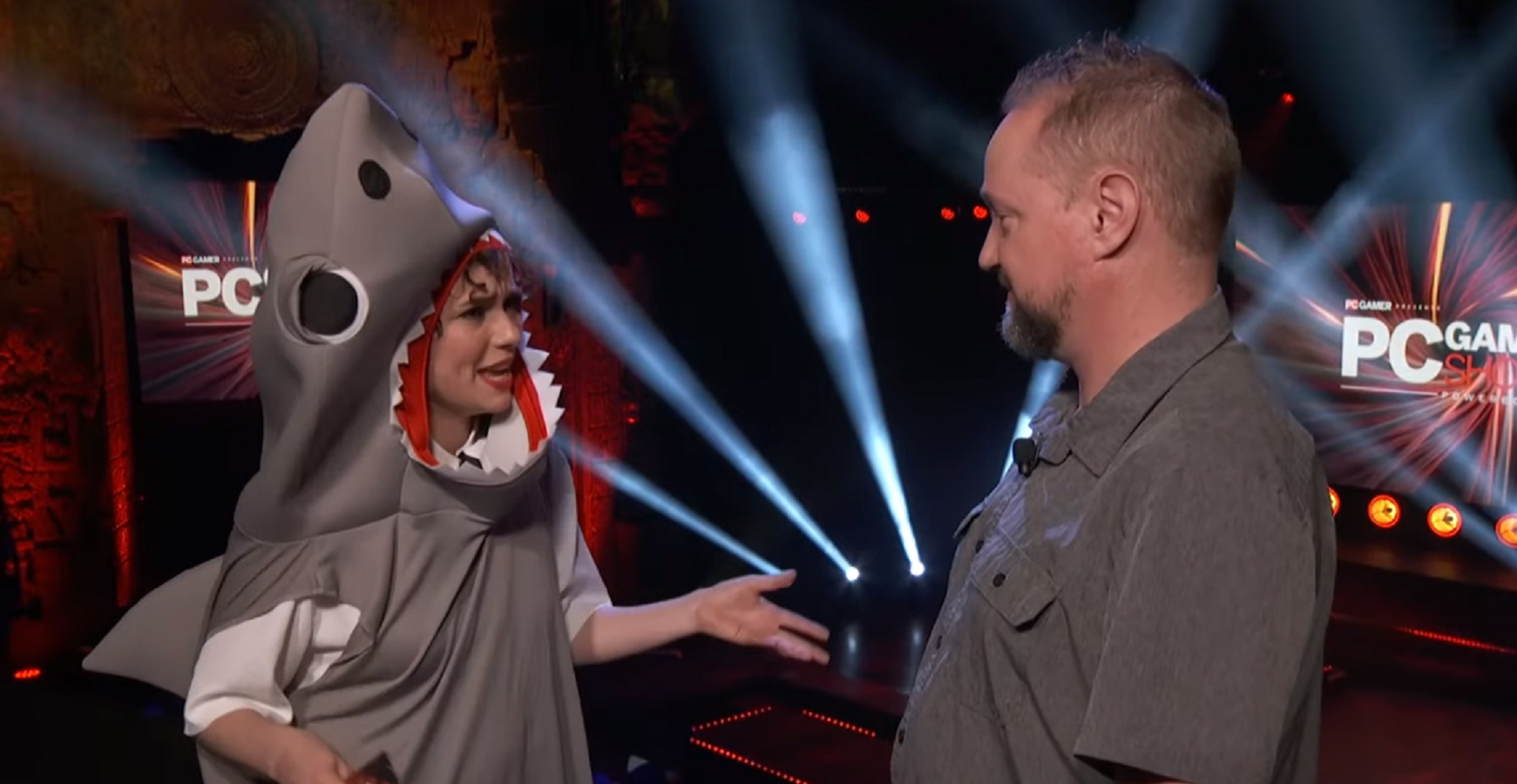The PC Gaming Show Is the Best E3 Press Conference

Credit to Author: Cameron Kunzelman| Date: Mon, 10 Jun 2019 20:11:42 +0000
E3 is a yearly hype experience where companies talk about new hardware, developers tell us about their upcoming games, and everyone gets together to holler about their favorite video games. The biggest companies, like Microsoft, Ubisoft, and Bethesda, run their own press conferences so that we can mainline their new information directly into our eyes and ears. But the real star of the week is the PC Gaming Show.
The PC Gaming Show is run by PC Gamer and has been sponsored by various companies over the years (this year’s big headliner is The Epic Games Store), and its whole deal is celebrating the wide variety of PC games that exist. This isn’t a single company sharing its vision for the next few years through the single-minded alignment of projects from internal studios and external partners. This is hosts Sean Plott and Frankie Ward wrangling independent developers onto the stage and talking to them about their weird creations as an ad-hoc, freewheeling survey of what’s to come.
Some of these creations come from established companies. Chivalry 2, for example, is coming from a partnership between Killing Floor developer Tripwire Interactive and Torn Banner Studios, and so it’s a “safe bet” for showing off and would probably do well on the main stage in any other press event. But right alongside these standard presentations are moments like the one where a developer on Age of Wonders: Planetfall began erratically describing, in detail, the chaos of dinosaurs with lasers attacking zombie cyborgs in extended end-game battles. It’s nerdy and insular chatter, but it is also the kind of authentic talk that you might hear from a good friend who really, really wants you to try their favorite game.
There’s no room for that at the rest of the E3 press events. They’re linear and polished and timed optimally to keep your attention. After all, those presentations are meant to be a roadmap for how fans interact with their brand for the next few years. There’s a lot of money at stake, and the delivery needs to pay off on that investment.
As the main stage host for The PC Gaming Show, Plott is responsible for guiding the developers he’s talking to through their short presentations, but it’s obvious that these less-practiced encounters have some wiggle room for actual questions. Plott’s three minute, organic conversation with the developers of games like Midnight: Ghost Hunt and Songs of Conquest let us get a real angle on how these games came to be, what their references are, and what the goals are behind them.
It’s a more personal touch that feels good, but I think it’s also just a cultural good. The more we can put the people working on these games up beside CGI trailers and compelling gameplay footage, the better people can understand that it’s not just a mass machine that produces fully-formed objects. Video games are made by people with ideas, and despite all of the E3 promo videos of developers that pitch this information to fans, it rarely sticks. These moments of developers standing on a stage and speaking in (sometimes very specific) terms about how the sausage is made is distinct from the polished veneer of a bigger show. It is clunky. It is human.
Despite E3 being all about the developers and the fans who make those games possible with their eyes and ears, it is mostly a place for public relations to stretch its legs. There’s nothing I would like more than for other companies to follow the lead of The PC Gaming Show. Go a little leaner, be a little less spectacular, and show me the bones beneath it all. Show the work, and let the workers chat about it for a few minutes. I come away from every PC Gaming Show with a dozen games I’m looking forward to, and it’s rare that more than one thing catches my eye at a Microsoft presser. For me, it all comes down to the slower pace, the simpler presentation, and the focus on real content over splash.
This article originally appeared on VICE US.